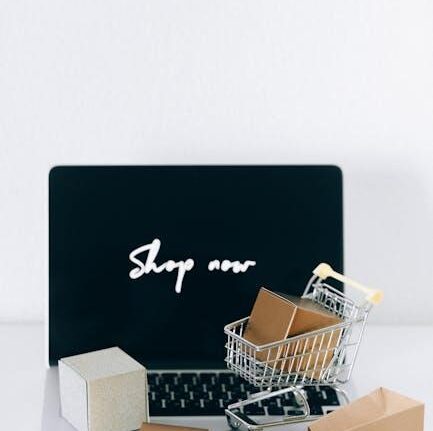- GLP-1 medications mimic a natural hormone that supports blood sugar control, appetite regulation and digestion.
- Supplements like berberine, probiotics and prebiotic fiber may help support GLP-1 activity naturally, though they don’t replace prescription drugs.
- People on GLP-1 meds may benefit from added electrolytes, B12, protein and creatine to maintain energy, prevent deficiencies and support muscle mass.
GLP-1 has become a hot topic in health and wellness. If you’ve heard of medications like Ozempic or Wegovy, then you’ve already heard about GLP-1. These drugs work by mimicking a natural hormone called glucagon-like peptide-1, or GLP-1 for short. GLP-1 helps support blood sugar control, appetite regulation and digestion.[1]
GLP-1 medications have grown in popularity because of their ability to support metabolic health. As more people use these drugs, interest is growing in natural ways to support GLP-1 function—like GLP-1 supplements, GLP-1 probiotics and even GLP-1 patches.
In this article, you’ll learn what GLP-1 supplements are, how they work, possible GLP-1 side effects and how to support your body—whether or not you take GLP-1 medications.
What Are GLP-1 Receptor Agonists?
GLP-1 is a natural hormone your body makes after you eat. GLP-1 helps your body release insulin,
control blood sugar and signal fullness.[2] It also slows down how fast your stomach empties, which helps you feel satisfied longer.[3]
GLP-1 receptor agonists are drugs that copy how this hormone works.[4] They attach to the same receptors as natural GLP-1 to support blood sugar control and appetite regulation. These drugs were first made for people with type 2 diabetes, but doctors now use them to support weight control too.
FDA-approved GLP-1 medications include:
- Ozempic® (semaglutide)
- Wegovy® (semaglutide)
- Mounjaro™ (tirzepatide) – acts on both GLP-1 and GIP receptors
- Rybelsus® (oral semaglutide)
- Trulicity® (dulaglutide)
- Victoza® (liraglutide)
These GLP-1 medications work by helping your body release more insulin when needed, slowing digestion and promoting fullness after meals. Many people taking them report eating less, feeling satisfied faster and better supporting blood sugar control.
Common Benefits and Side Effects of GLP-1 Medications
GLP-1 medications support how your body manages hunger, blood sugar and digestion. That’s why they’ve become popular tools for people with type 2 diabetes or those looking to support appetite and blood sugar control.
Common benefits of GLP-1 medications include:
- Appetite Control: These drugs help you feel full sooner and stay full longer.[5]
- Blood Sugar Support: GLP-1 meds trigger insulin when your body needs it, helping control blood sugar spikes.[6]
- Weight Control: Many people eat less while on these medications, which helps support healthy weight maintenance.[7]
Possible side effects of GLP-1 medications include:
- Nausea and Digestive Upset: Some people feel queasy, especially at the beginning.[8] Others report bloating or constipation.[9]
- Muscle Loss: Eating too little can lead to muscle breakdown if you’re not getting enough protein.
- Nutrient Deficiencies: Smaller meals or poor appetite may cause you to miss key vitamins and minerals.
Because of these side effects, some people turn to GLP-1 supplements to support their body while using these medications—or as natural options if they’re not taking a prescription.
Is There a Supplement That Works Like GLP-1?
GLP-1 medications work by mimicking the hormone GLP-1. Some supplements may help support GLP-1 activity in the body, but they don’t act the same way as prescription drugs. The difference comes down to strength and function.
GLP-1 medications are powerful and made to copy the effects of the hormone directly. GLP-1 supplements and natural ingredients don’t replace this hormone. Instead, they may support your body’s own GLP-1 production or help it work more efficiently. That’s a key difference.
Still, some nutrients and ingredients show potential to support your body in a similar way, without needing a GLP-1 prescription.
How Can I Stimulate GLP-1 Naturally?
Certain ingredients may help your body support its natural GLP-1 activity:
- Berberine: A plant compound shown to support blood sugar control and GLP-1 signaling.[10]
- Probiotics (including GLP-1 probiotic strains): Gut bacteria play a role in hormone signaling. Some strains may support GLP-1 activity.[11]
- Fiber (like inulin or prebiotics): Fiber supports fullness and helps feed good gut bacteria, which may promote GLP-1.[12]
- Amino acids: Some proteins or peptides may signal GLP-1 release during digestion.[13]
- GLP-1 patches and other topicals: These are newer tools designed to deliver ingredients through the skin, but more research is needed.[14]
Using a GLP-1 supplement or GLP-1 probiotic won’t act exactly like medication, but it can support similar systems. These options may be a good fit if you’re not using prescription meds—or want added support while you are.
Best Supplements for People on GLP-1 Medications
People taking GLP-1 medications have unique nutritional needs. These drugs can curb appetite and slow digestion, which may lead to reduced nutrient intake or absorption. The right supplements can help fill those gaps, maintain energy and support overall health.
Supporting Nutrient Absorption and Energy
GLP-1 medications slow gastric emptying and often reduce overall food intake. While this helps regulate blood sugar and curb appetite, it can also limit the absorption of essential nutrients. Over time, this may lead to fatigue, headaches, muscle cramps, or brain fog. Strategic supplementation can help offset these effects and support consistent energy levels.
Start with electrolytes—especially sodium, potassium and magnesium. These minerals help regulate fluid balance, nerve signaling and muscle contractions.[15] When food intake drops or digestion slows, it’s easier to become dehydrated or lose essential minerals. Electrolyte powders or capsules can replenish what’s lost and support energy metabolism.
Next, consider vitamin B12, a water-soluble vitamin that plays a critical role in red blood cell formation and neurological function. Some studies suggest that GLP-1 medications may impair B12 absorption, either directly or by affecting stomach acid production.[16] Since B12 deficiency can lead to fatigue, tingling, or cognitive changes, it’s worth supplementing—especially if you follow a low-meat or vegetarian diet.
Magnesium is another key player. It supports over 300 biochemical reactions, including those involved in energy production and blood sugar regulation. Supplemental magnesium can also ease constipation, a common side effect of GLP-1 drugs. Look for forms like magnesium glycinate or citrate for better absorption and fewer digestive side effects.
Together, these supplements support optimal nutrient absorption, steady energy levels and a more balanced experience on GLP-1 medications.
Preventing Muscle Loss on GLP-1 Drugs
GLP-1 medications can lead to unintentional muscle loss, especially if you reduce your calorie and protein intake. While fat loss is often the goal, preserving lean muscle mass is just as important. Muscle supports metabolic health, helps regulate blood sugar and keeps your body strong and resilient.[17] Fortunately, a few targeted supplements can help you protect it.
Start with a high-quality protein supplement. Whey, collagen and plant-based proteins deliver essential amino acids that your body needs to build and maintain muscle. Because GLP-1 meds can reduce hunger, it’s not always easy to get enough protein from food alone. Protein powders offer a convenient way to hit your daily targets, especially after workouts or between meals.
Collagen peptides are another smart choice. They’re easy to digest, mix well into drinks and support not just muscle mass, but also joints, bones and skin.[18] This can be especially helpful if you’re losing weight rapidly and want to maintain overall body structure and resilience.
Lastly, creatine helps with strength, muscle cell hydration and lean mass preservation.[19] It’s one of the most studied and effective supplements for supporting muscle, making it ideal for those on GLP-1 meds.
GLP-1 supplements and supportive nutrients can play an important role in your health—whether you’re taking prescription GLP-1 drugs or simply want to support metabolic function naturally. By choosing targeted supplements, you can help offset side effects, support strength and promote long-term wellness from multiple angles.
Join the Bulletproof Revolution
Sign up for early access to sales, product launches, the latest Bulletproof news and more!














Leave feedback about this